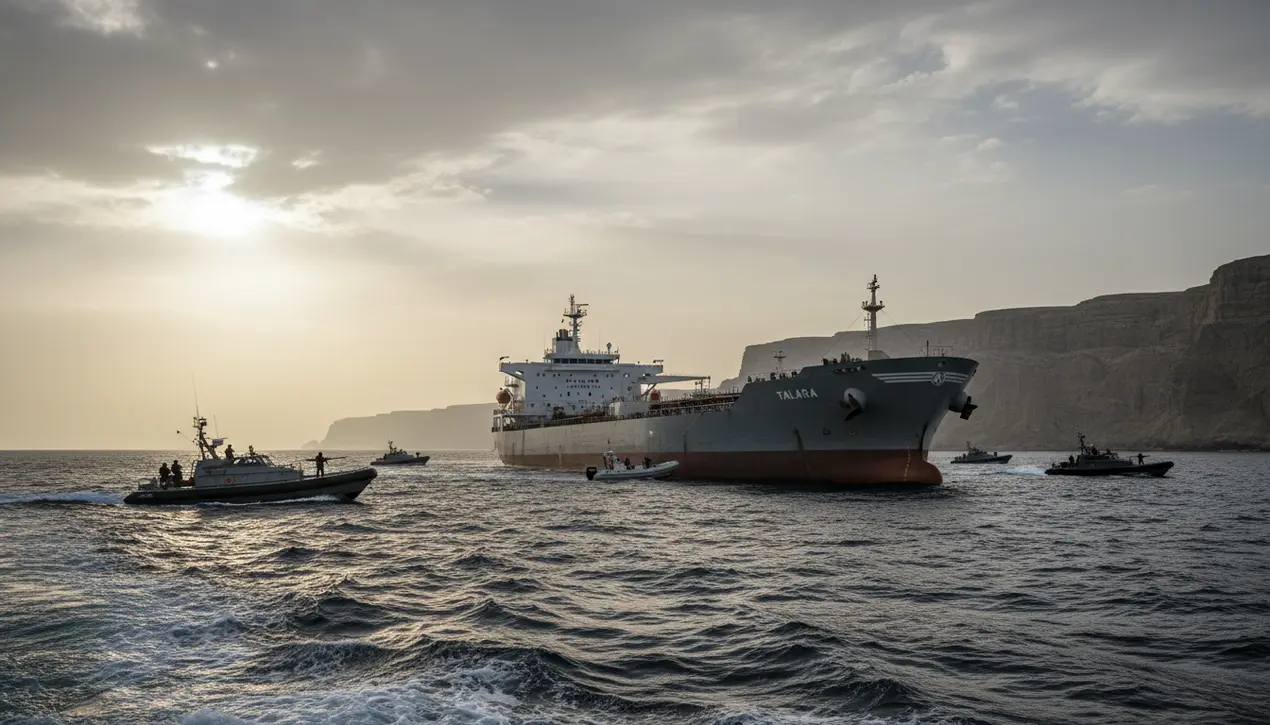
Politicsconflict & defenseMilitary Operations
Iran Seizes Tanker in the Strait of Hormuz.
OL
Oliver Scott
2 hours ago7 min read3 comments
The seizure of the Talara tanker in the Strait of Hormuz is not an isolated maritime incident but a calculated geopolitical gambit with immediate and far-reaching implications for global energy security and regional stability. According to initial reports, the vessel was transiting from the United Arab Emirates to Singapore when it was intercepted, a move that immediately recalls Iran's long-standing pattern of leveraging its strategic control over the chokepoint through which roughly 21% of the world's liquefied natural gas and a fifth of global oil consumption passes.This action must be analyzed through a multi-layered risk matrix. Firstly, the operational context: the Strait is a mere 21 nautical miles wide at its narrowest point, placing any vessel within it under the potential shadow of Iranian fast-attack craft and coastal defense batteries.The Talara's seizure follows a well-established Iranian playbook of responding to perceived external pressures, such as intensified sanctions or the seizure of Iranian oil cargoes by other state actors, with asymmetric retaliation in the maritime domain. Historical precedent is stark; recall the 2019 tanker crises and the retaliatory seizure of the Stena Impero, which led to a dramatic, albeit temporary, spike in global insurance premiums and sent oil prices climbing.The immediate consequence will be a re-assessment of risk by shipping conglomerates and Lloyd's of London underwriters, likely resulting in heightened war risk premiums for any vessel transiting the area, a cost ultimately passed to consumers. Furthermore, this event tests the resolve and response protocols of international naval forces present, primarily the US Fifth Fleet headquartered in Bahrain.A muted or delayed response could be interpreted in Tehran as a green light for further escalation, potentially emboldening proxy forces and increasing the likelihood of miscalculation. Conversely, an overtly aggressive Western military posture risks triggering a cycle of escalation that could quickly close the Strait entirely—a black swan event with catastrophic consequences for the global economy.The broader analytical insight points to a deteriorating deterrence framework. Iran's Islamic Revolutionary Guard Corps (IRGC) Navy, which typically conducts these operations, operates with a significant degree of autonomy from the more moderate political factions in Tehran, indicating that internal power dynamics are directly influencing external aggression.This incident should be viewed not as a standalone event, but as a potential trigger in a cascade of regional destabilization, affecting shipping lanes, energy markets, and the already fragile diplomatic efforts to contain the nuclear standoff. The scenario planning for markets and governments must now actively include the probability of further, more audacious seizures, attacks on critical infrastructure, and a sustained campaign of maritime harassment that could shatter the delicate peace in the Gulf.
#Iran
#Strait of Hormuz
#tanker seizure
#maritime security
#featured
#United Arab Emirates
#Singapore
#Talara
Stay Informed. Act Smarter.
Get weekly highlights, major headlines, and expert insights — then put your knowledge to work in our live prediction markets.
Comments
Loading comments...
© 2025 Outpoll Service LTD. All rights reserved.